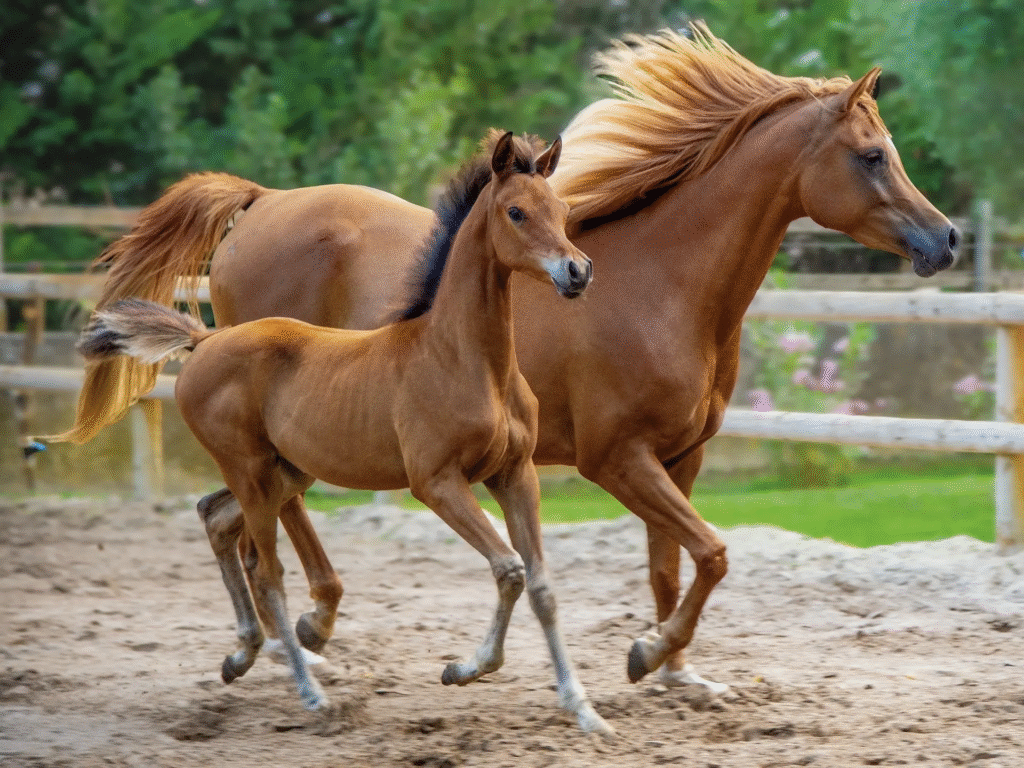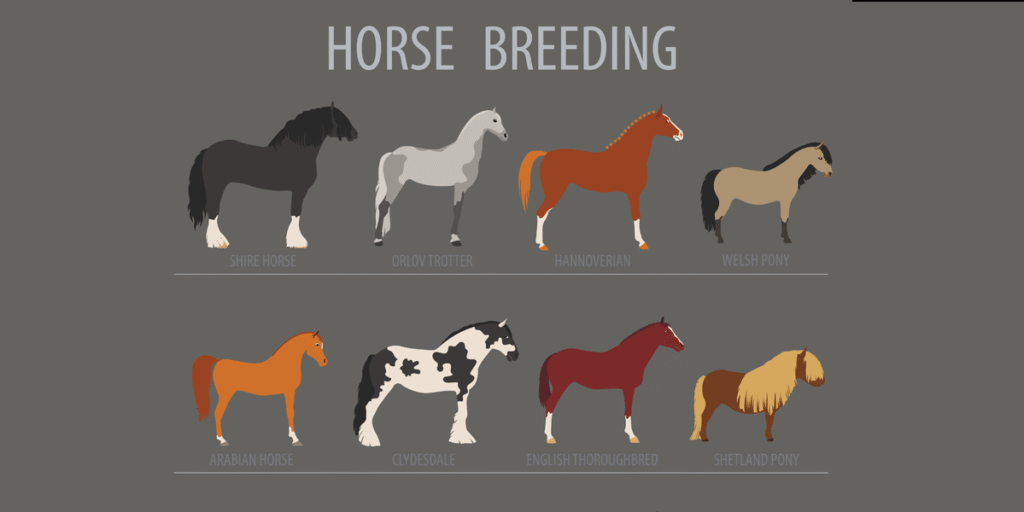Have you ever seen a horse so beautiful that it takes your breath away? That’s the Egyptian Arabian horse. Known for their elegance, charm, and royal history, these horses are more than just animals—they’re legends with hooves.
What is an Egyptian Arabian Horse?

Definition and Overview
An Egyptian Arabian horse is a specific strain of Arabian horse that traces its ancestry strictly to horses bred in Egypt. These horses are known for their distinctive beauty, refinement, and historical significance.
The Uniqueness of Egyptian Arabians
Not all Arabian horses are the same, and Egyptian Arabians stand out because of their bloodline purity, exotic appearance, and rich cultural background. They are highly valued by breeders and horse lovers across the globe.
History of the Egyptian Arabian Horse

Ancient Egyptian Connection
The story of the Egyptian Arabian horse dates back to pharaohs and ancient warriors. These horses were often depicted in tomb paintings and were believed to be the mounts of kings and nobility.
Preservation Through Centuries
Despite centuries of war and turmoil, Egypt has successfully preserved this unique breed. Thanks to dedicated breeders and royal stables, the Egyptian Arabian remains one of the purest lines today.
Straight Egyptian Arabian Horses
What Does “Straight Egyptian” Mean?
“Straight Egyptian” refers to horses whose entire pedigree traces back to horses bred in Egypt. There is no crossbreeding with other Arabian lines. This makes them the crème de la crème of the Arabian horse world.
Why Straight Egyptian Bloodlines Matter
Straight Egyptian bloodlines are considered the gold standard. They are rare, highly desirable, and often come with prestige and higher prices. Breeders prize them for maintaining the ancient traits that define the Arabian horse.
Key Characteristics of Egyptian Arabian Horses

Physical Features
Egyptian Arabians have a distinctive dished face, large expressive eyes, arched neck, and high tail carriage. They are usually smaller but incredibly graceful, like living art.
Temperament and Behavior
These horses are known for their loyalty, intelligence, sensitivity, and spirit. They form deep bonds with their owners and are quick learners, but they need gentle handling and respect.
Egyptian Stallions: Legends and Legacy
Famous Egyptian Stallions
Legendary Egyptian stallions like Ansata Ibn Halima, Morafic, and Alaa El Din have left a global impact. Their offspring continue to dominate breeding programs worldwide.
Breeding Influence Worldwide
Egyptian stallions have influenced bloodlines in Europe, the United States, and the Middle East. Their genes are sought after to enhance beauty, refinement, and charisma in Arabian horse breeding.
Differences Between Egyptian Arabians and Other Arabian Horses
Bloodline Purity
Egyptian Arabians often have documented pure pedigrees that trace back centuries. Other Arabian horses may have mixed lines from different regions like Poland, Russia, or Spain.
Appearance and Conformation
While all Arabians are beautiful, Egyptian Arabians typically have a more exotic look, including more pronounced dished faces, thinner skin, and more refined features.
Personality Differences
Egyptian Arabians are often described as more sensitive and more closely bonded to their human companions than other Arabian strains.
The Role of Egyptian Arabians in Modern Horse Breeding

Global Demand
There is a strong international demand for Egyptian Arabians, especially in the Gulf countries, Europe, and the USA. They are used to improve bloodlines and bring classic beauty into modern Arabians.
Preservation Programs
Because of their rarity, many breeders participate in preservation programs to ensure these pure bloodlines do not disappear.
Why People Love Egyptian Arabian Horses
People adore Egyptian Arabians for their fairy-tale appearance, noble history, affectionate nature, and impressive performance in shows. Owning one feels like owning a piece of ancient history.
Common Misconceptions About Egyptian Arabian Horses

Some people believe these horses are too delicate or only meant for show. That’s not true. Egyptian Arabians can excel in endurance, dressage, and even casual riding when properly trained.
Tips for Caring for an Egyptian Arabian Horse
- Provide a calm, respectful environment—they’re highly sensitive.
- Consistent, gentle training is key.
- Ensure they have proper nutrition and regular vet care.
- They thrive with mental stimulation and social bonding.
Conclusion
The Egyptian Arabian horse is a living treasure—a blend of beauty, history, and heart. From their ancient roots to their modern-day grace, they remain one of the most captivating breeds in the world. Whether you’re a breeder, a rider, or just an admirer, these horses will steal your heart and never let go.
FAQs
1. What makes a horse a Straight Egyptian Arabian?
A Straight Egyptian Arabian horse has a pedigree that is entirely from Egyptian bloodlines, with no mixing from other regions.
2. Are Egyptian Arabian horses good for beginners?
They can be, but their sensitivity and intelligence mean they are better suited to riders who understand gentle, consistent training methods.
3. How much does an Egyptian Arabian horse cost?
Prices vary greatly but can range from $10,000 to over $100,000, especially for horses with prestigious bloodlines.
4. Can Egyptian Arabians compete in endurance races?
Yes, they can excel in endurance if properly conditioned. They are strong, agile, and have excellent stamina.
5. Are Egyptian Arabians only bred in Egypt?
No, but the term “Straight Egyptian” means the bloodline traces back exclusively to Egyptian horses, even if the horse is bred in another country.







